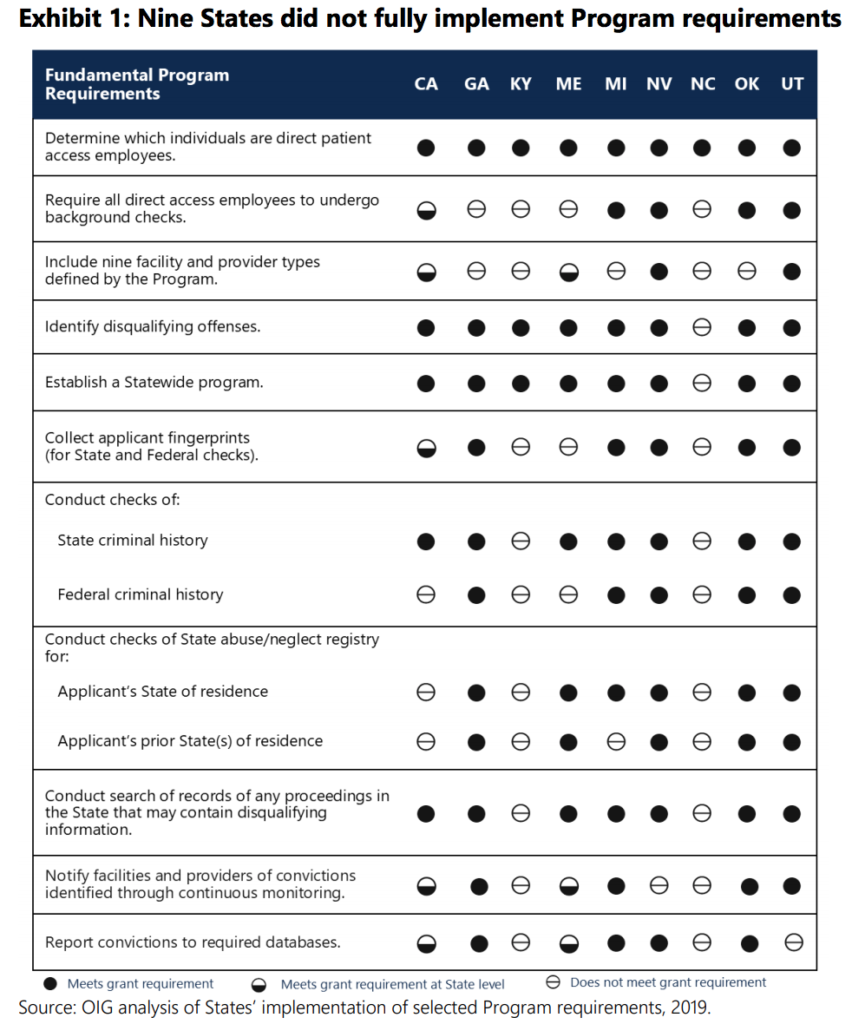
States continue to be hampered in their ability to fully implement requirements of the National Background Check Program for Long-Term Care Providers, mainly because of a lack of legislative authority for certain program requirements, according to a new report from the Department of Health and Human Services Office of Inspector General.

The OIG evaluated the programs for 11 of the 12 states that concluded program participation between 2017 and 2018: California, Georgia, Kentucky, Maine, Michigan, Minnesota, Nevada, North Carolina, Oklahoma, Utah and West Virginia. Minnesota and West Virginia implemented all 13 selected program requirements, according to the report, but eight states lacked legislative authority to implement certain requirements of the program.
“We strongly encourage the Centers for Medicare & Medicaid Services (CMS) to implement this open recommendation: take appropriate actions to encourage States to obtain the necessary legislative authority to fully implement Program requirements,” wrote Suzanne Murrin, deputy inspector general for evaluation and inspections.
The recommendation echoes one made in an April report, which assessed the long-term care background check programs of 10 states that concluded participation in the program between 2013 and 2016. That report included a letter from CMS Administrator Seema Verma indicating that CMS concurred with the OIG recommendation. The new report did not include commentary from Verma, because the recommendation was not new.
Enacted by legislation in 2010, the National Background Check Program provides grants to states to develop systems to conduct background checks of state and federal criminal history records for prospective long-term-care employees for nine types of long-term-care facilities or providers:
- providers of personal care services,
- residential care providers that arrange for long-term-care services or provide long-term care services,
- skilled nursing facilities,
- nursing facilities,
- providers of adult day care,
- home health agencies,
- providers of hospice care,
- long-term-care hospitals and
- intermediate-care facilities for individuals with intellectual disabilities.
Of the background checks conducted in 11 states studied for the new report, more than 25,000 resulted in determinations of ineligibility for prospective employees, the OIG said. None of the states, however, provided evidence of unintended consequences associated with conducting background checks, such as a reduction in the available workforce for long term-care facilities or providers, according to the report.



